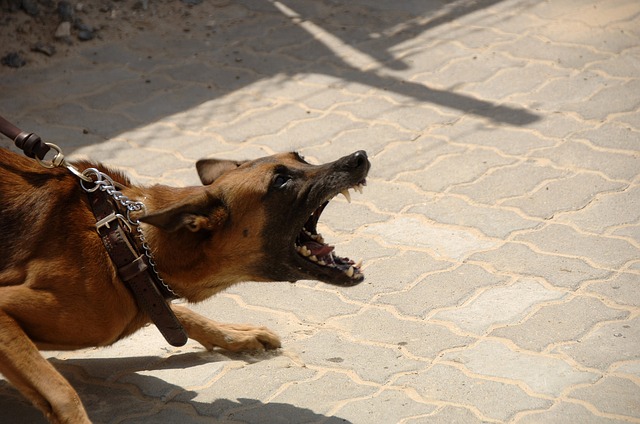Stress in Dogs – The most common cause of problematic behaviour ?

Stress and Anxiety can have a significant effect on your dog & their behaviour. Know the signs of what to look for & the situations that can cause it.
DO YOU KNOW HOW TO SPOT STRESS IN DOGS?

Stress and Anxiety can have a significant effect on your dog and it’s behaviour, and if you don’t know how to spot signs of stress in your dog, you could be missing important information that could help you and them.
What many owners perceive to be their dog behaving badly, can in fact be their dog’s response to a situation because of stress, fear or anxiety and even excessive arousal, which can all require very different handling by us.
It may not be that you're dog is 'acting up' or 'behaving badly' it is likely they are struggling with something, and it's our duty as their carers to figure out what that is and support them appropriately.
Some Symptoms of Stress in dogs
Do you remember seeing your dog do any of these?
Spend some time watching your dog, especially in potentially stressful situations such as training classes, meeting another dog for the first time, strangers visiting the house, seeing another dog on the street and many other situations that we perceive as normal, but our dogs actually find stressful at times.
- Panting (especially if it’s not hot)
- Lip Licking
- Yawning
- Shaking (as if shaking off water)
- Nervousness – easily startled
- Restlessness – unable to calm down
- Pulling on the lead
- Destructive behaviours – especially when alone
- Excessive barking
- Over-eating – pica (eating inedible things)
- Loss of Appetite and/or refusal to take treats
- Skin problems – Allergies
- Biting on the lead
- Poor concentration
Stress and anxiety is common among pet dogs, and is most often the root cause of behavioural problems. If we as owners can take a little time to learn to recognise when our dogs are feeling anxious, we would be able to make sure our responses to their behaviours and how we support them are appropriate for how they are feeling.
This would mean not only a much happier, more relaxed dog, but also the prevention of further behavioural problems which could result if we handle a dog who is essentially upset or stressed out in the wrong way.

From The DOG’s Point of View:
Let's say, you have a dog that reacts to other dogs when they're out walking, by barking and maybe lunging on the lead, your response to this is to pull them back, maybe shout at them to be quiet, tell them off, maybe even smack them?
Many dogs bark and overreact to other dogs when they are outside because they are AFRAID, it’s a stress response to a situation they feel uncomfortable and trapped in (because they're restrained by a lead.)
Your dog's instinctive options when they feel threatened are fight or flight. So if they're on a lead, they know they can’t move away or run away, therefore their only option is to ‘scare’ the other dog away, so a fight doesn’t take place, and they do this by barking at it.
Their 'aggressive' display of barking and lunging forward is not an attempt to get into a fight, it's your dog desperately trying to avoid one by making the other dog back off. All of your dog's instincts are designed by nature to avoid them getting hurt, so if a potential threat is nearby, they act accordingly to move the threat away.
So if your response to your dog’s behaviour is to tell them off, from your dog’s point of view, when they see another dog, unpleasant things happen to them. So now they're even more upset or afraid of this situation, which makes them want to move the other dog away even more!
The only way they know how to make the other dog back off, is to bark even MORE ferociously at it, so it doesn’t come near them and make unpleasant things happen.
Your dog’s association with seeing another dog = unpleasant things happen to him, from you.
So you can see clearly from this example, how an owner’s inappropriate response to their dog’s behaviour not only fails to solve the problem, but in fact makes it worse.
Stress, fear and anxiety are all common in dogs, as they are in humans, and how we recognise the stress and deal with it, will determine how well we are able to prevent, manage or resolve these overreactions to situations.
Stress occurs when a dog is placed in any situation in which they feel unable to cope or afraid. This discomfort is relative to each individual dog, some dogs cope well in a training class for example, but for others it sends their stress levels through the roof to be in such close proximity to a number of other strange dogs.
Acceptable levels of stress are present in a dog’s life all the time and are necessary to stimulate and encourage growth, but when these challenges become constant or unbearable, that’s when stress becomes a problem and the body reacts in a way that makes it difficult for the animal to cope with his experience.
Stress is also something that builds, and overlaps into other area’s. So for instance, pulling on a lead is a stress inducing behaviour which raises a dog’s reactivity level by default, this will automatically make them more likely to react badly to any strange situation or strange dog that he feels uncomfortable with.
As with humans, each dog will react to stress in different ways and at different levels. Something that may cause one dog to become stressed would not necessarily another, they each have their own stress threshold in every individual situation.

Possible Situations that Can Cause Stress in Dogs
Possible causes of stress in dogs can be many and varied, and as previously mentioned, are individual to each dog, some examples are:
- Aggressive handling or training
- Training Classes
- Confusion (Owners not being consistent with boundaries)
- Being left alone for too long, or too often
- An over stimulating environment
- Strange situations the dog is not familiar with
- Strange people the dog is not familiar with
- Strange objects close to them
- Loud noises both in or outside the home
- Travelling in the car
- Visiting the vets
Scientific studies in human physiology have proven that stress leads to health problems, makes us unbalanced, irritable and aggressive, and so it is for our dogs. Behaviours such as Aggression, Destruction, Excessive Barking, Over Attachment and Hyperactivity are all likely to have stress as a large part of their root cause and these dogs are merely reacting to a situation in which they feel unable to cope.
When we are able to recognise the symptoms of stress, we are able to work with behaviour problems at a core level increasing chances of success.
If you would like to know more about the stress signals dogs display and see some of them in action, you can CLICK THIS LINK to watch a video on our YouTube channel.
Spend some time watching your dog, paying close attention to the subtle signals they give about how they're feeling. If you think your dog’s problematic behaviour could be caused by stress, fear or anxiety, enlist the services of a suitably qualified professional to help you deal with the root cause of the problem, which in turn will lessen or even eliminate the problematic behaviours your dog is displaying.
 Meesh Masters
Meesh Masters 
